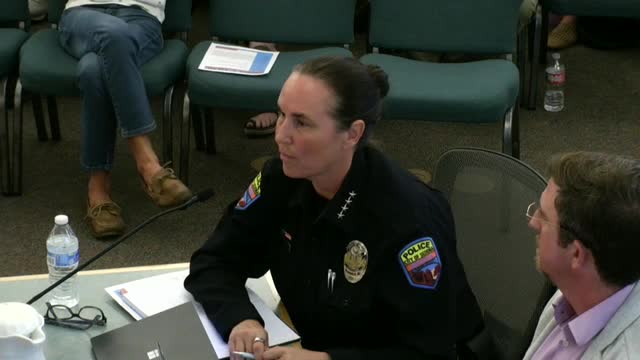Sedona Police Discuss Flock System and Data Sharing Policies in Council Meeting
August 13, 2025 | Sedona, Yavapai County, Arizona
Thanks to Scribe from Workplace AI , all articles about Arizona are free for you to enjoy throughout 2025!

This article was created by AI using a video recording of the meeting. It summarizes the key points discussed, but for full details and context, please refer to the video of the full meeting. Link to Full Meeting
The meeting highlighted the potential benefits of FLOC, particularly its ability to assist law enforcement in identifying stolen vehicles and responding to Amber Alerts. As vehicles pass through the system's cameras, images are captured and uploaded to a secure cloud database, allowing for near real-time updates. However, the council was keen to clarify the boundaries of this technology, especially regarding the sharing of data with other agencies.
Commander Dahl emphasized that while the system could flag vehicles of interest, it does not automatically connect to personal identifiable information (PII) databases. This means that any further investigation, such as identifying a suspect's address, requires manual input from officers or dispatchers. The council members expressed a desire to ensure that the system remains a tool for criminal activity prevention rather than a means of tracking civil violations, such as parking tickets.
A significant point of discussion revolved around the training provided to law enforcement personnel. Commander Dahl noted that initial training for the FLOC system lasted about an hour and a half, with ongoing training required annually to maintain compliance with state regulations. This commitment to training aims to prevent misuse of the system, a concern that was echoed by council members who sought reassurance that safeguards are in place.
The conversation also touched on the ethical implications of data sharing. Council members raised questions about the potential for outside agencies to access Sedona's data for non-criminal inquiries, such as parking violations. The consensus was clear: any request for data would be scrutinized, ensuring that only relevant and serious inquiries would be entertained.
As the meeting drew to a close, the council's commitment to transparency and responsible governance was evident. The discussions surrounding the FLOC system underscored a broader commitment to enhancing community safety while respecting individual privacy rights. With the technology still in its early stages, Sedona's leaders are poised to navigate the challenges and opportunities that lie ahead, ensuring that the city's approach to public safety remains both effective and ethical.
Converted from Sedona - City Council meeting on August 13, 2025
Link to Full Meeting
Comments
View full meeting
This article is based on a recent meeting—watch the full video and explore the complete transcript for deeper insights into the discussion.
View full meeting
